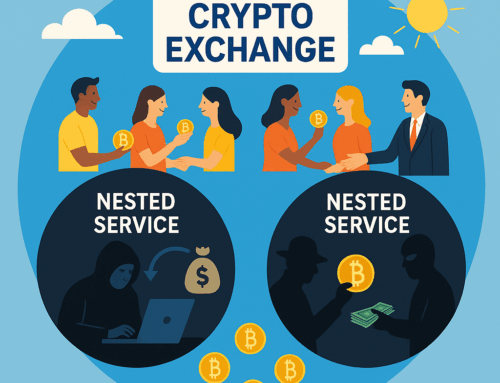ABNAMRO Bank has just announced that it will also compensate customers for damage caused by spoofing fraud in specific cases of “gross negligence”. Until now, this bank has been stricter in assessing fees requested than the other banks.
In spoofing fraud, a scammer takes possession of a victim’s bank balance by calling the bank’s unique number, giving the scammer the confidence that it is a real bank employee who is calling. Spoofing is technically still possible.
We received the following letter from the bank:
Dear Mr Groenendijk and Hupkes,
Mr Swaak and several other colleagues have received your letters of 20 December 2021.
In these letters you ask the bank to be more generous in applying the leniency scheme that has been created to help customers who have become victims of spoofing. We take this signal and other signals from our customers and the media very seriously, which is why the bank has reconsidered its compensation policy in the event of fraud in recent weeks.
This policy is there to be able to act unambiguously and honestly towards our customer. ABN AMRO will reimburse spoofing, also described as “bank help desk fraud” under certain conditions as a courtesy. We reimburse this because the trust that customers have in their bank is abused because criminals misuse the name and/or telephone number of the bank.
However, we see that the fraudster moves the customer to take unusual actions that are also in violation of the Security Rules. For example, security codes such as PIN codes are shared and the debit card is handed over. ABN AMRO is of the opinion that the bank is not obliged, both by law and in accordance with the agreements within the leniency framework (NVB, 2 June 2021), to compensate the damage if the customer has not complied with the 5 Security Rules.
Nevertheless, we have decided – without obligation – to compensate the damage for the time being out of leniency. We do this because our aggrieved customers were sincerely convinced that they had dealt with an ABN AMRO employee and we would like to treat our customers generously. ABN AMRO attaches great importance to the trust that customers place in it and wants to maintain this trust. Sustainable customer relationships are essential for the bank and compensating for this loss is in line with the bank’s purpose of ‘banking for better for generations to come’.
If the damage occurred in the past because the customer thought he was talking to an employee of the bank, this damage will be compensated – under the other applicable conditions of the leniency framework – even if, for example, security codes or the debit card have been shared with the fraudster. ABN AMRO is now reassessing various files. Based on the specific circumstances of the file, it will be assessed whether the customer is still eligible for leniency. In the coming weeks we will send a letter to customers concerned about this. The first customers have already received these.
Prevention is also an important objective for GIBO. We therefore appeal to you. Please help us to bring the safety rules even more to everyone’s attention. The website www.veiligbankieren.nl and our own website www.abnamro.nl/nl/prive/abnamro/veilig-bankieren contains a lot of information. Among other things, about recognizing fraud and about the possibility of reporting fraud. It is important for every account holder to realize that personal codes, including security codes and PIN codes, but also the bank card itself may not be shared with anyone. If everyone adheres to this, this form of fraud will no longer lead to damage and grief.
If you have any questions about this letter, please contact us at this email address.
Yours sincerely”,
(was signed)
This move is good news for a specific group of approximately 80 duped ABN AMRO customers who previously had to deal with a refusal to pay compensation because, in the view of the bank, there was “gross negligence” (such as handing over the debit card or disclosing the PIN to the fraudster). The damage of spoofing cases in which the fraudster instilled the confidence to contact the bank on behalf of the bank by spoofing the telephone number, whereby the money was transferred to the account of a money mule, was already compensated by ABNAMRO, just like by the other parties. banks. ABNAMRO assessed a small group of cases more strictly than the other banks. This discrepancy is now being rectified by reassessing cases in which compensation was previously denied. There are a large number of cases pending at the Kifid complaints institute that can now be withdrawn.
For further information, we refer to the website of our client foundation GIBO, which represents the interests of the victims.
The information page of ABNAMRO about fraud can be found here .




